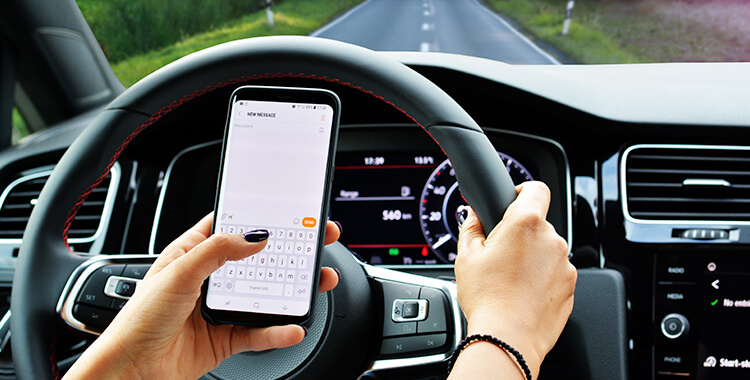
Distracted Driving Car Accident Lawyers
Distracted driving includes taking your eyes off the road; taking your hands off the steering wheel or letting your mind wander off your primary task of driving. In the United States, an estimated 8 people are killed every day in crashes that involve a distracted driver. That’s an incredible statistic that can be completely prevented or at least significantly reduced if drivers would just focus more on the road. These avoidable deaths include people that were not even in vehicles. About 20% of these wrongful deaths were people walking, riding their bikes, or participating in another activity outside of a vehicle. The distracted driving car accident attorneys at Gold, Khourey & Turak have recovered millions of dollars in compensation for those injured or wrongfully killed in car accidents, including accidents involving distracted drivers. Contact us today at (304) 845-9750 for a free consultation.
Performing non-driving activities while behind the wheel puts you at a greater risk of causing a car accident or crash. Most people have phones or other electronic devices, and using these while driving pose a serious safety threat to the driver, passengers, and to other innocent people outside of the vehicle. We strongly encourage you to always drive distraction-free, making the roads a safer place. Unfortunately, not everyone does this, and many personal injuries and wrongful deaths occur because of someone’s reckless driving. When accidents like these happen to you, you need the best car accident attorney for you and your family. GKT can help you.
At GKT, we have represented thousands of people injured or killed in car accidents, and we can help you too. If you have been injured, or a loved one killed, because of someone else’s distracted driving, contact us as soon as possible so we can help. It’s easy, it’s free and it’s worth it.
Our Distracted Driving Car Crash Lawyers Get Results
A consultation with one of our distracted driving car crash lawyers is always free. Our car accident lawyers are available to discuss your distracted driving accident case 24/7, 365 days a year. We handle distracted driving car accident wrongful death and distracted driving car accident injury cases on a contingency fee basis. That means that we don’t charge a fee unless we obtain compensation for you. If you think you have a distracted driving car accident case, we are here to help.


